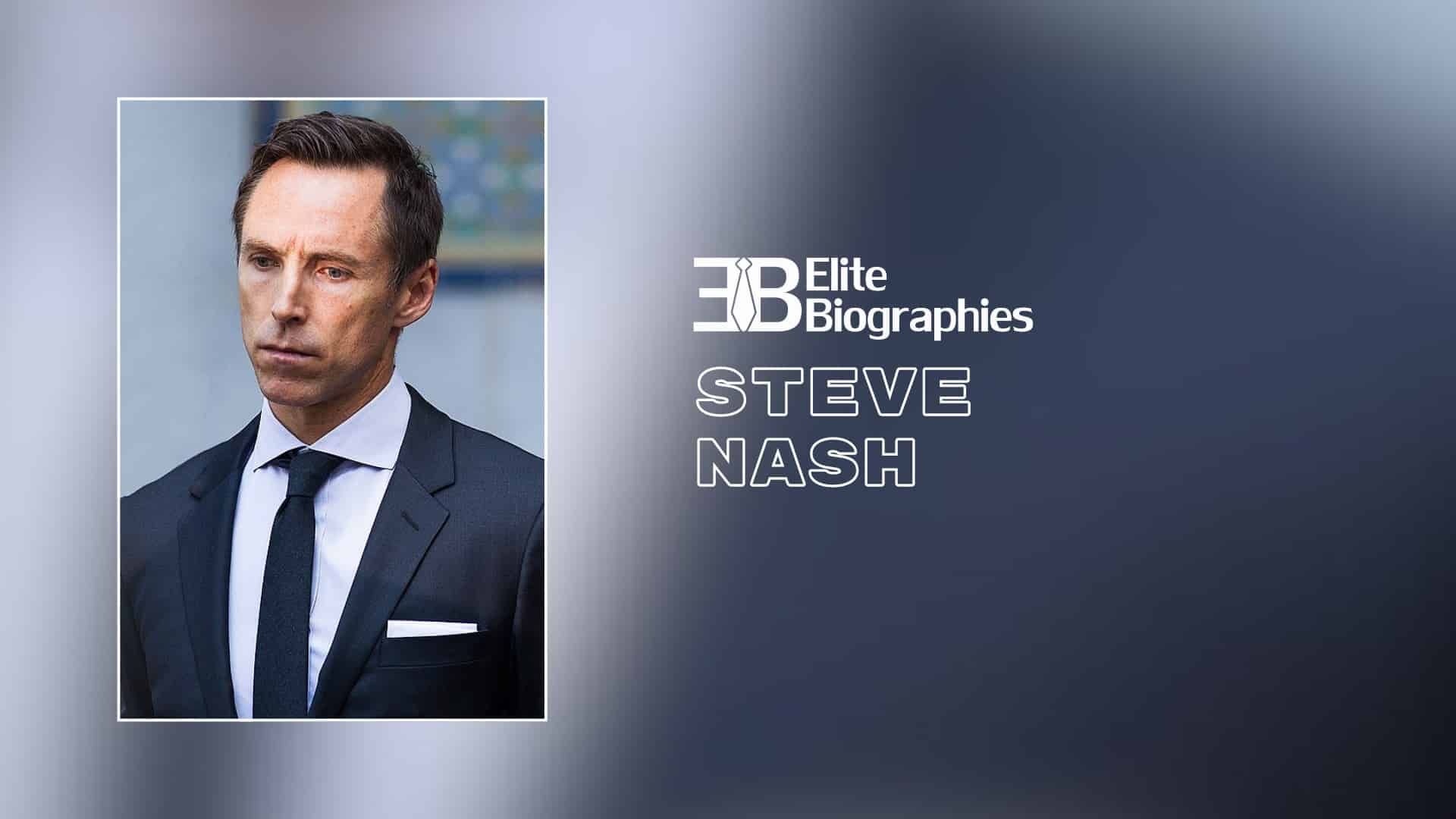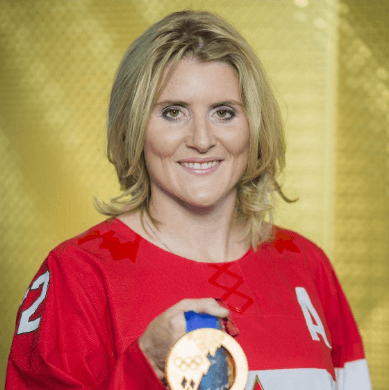
Steve Nash, born on February 7, 1974, is a former professional basketball player and current coach who is highly regarded in the world of sports for his outstanding contributions to basketball. An exceptional point guard, Nash has made a name for himself with his playmaking, shooting, and leadership abilities.
Early life
Steve Nash was born on February 7, 1974, in Johannesburg, South Africa, to Jean, his Welsh mother, and John, his English father. When he was just 18 months old, his family relocated to Regina, Saskatchewan, and eventually settled in Victoria, British Columbia. He holds dual citizenship – British and Canadian. Before the family’s move to Canada, Nash’s father played professional soccer in several countries.
Growing up, Nash would often play soccer and ice hockey with his younger brother Martin. He didn’t start playing basketball until he was around 12 or 13 years old. In eighth grade, he confidently told his mother that he would one day become an NBA star. Future NHL stars Russ and Geoff Courtnall, who lived nearby, would babysit Nash and even participated in soccer games coached by his father.
Originally, Nash attended Mount Douglas Secondary School in Saanich, British Columbia. However, when his academic performance started to decline, his parents decided to transfer him to St. Michaels University School, a private institution in Victoria. At St. Michaels, Nash excelled in multiple sports including basketball, soccer, and rugby union. In his senior year playing basketball, Nash averaged impressive statistics of 21.3 points, 11.2 assists, and 9.1 rebounds per game. During the 1991-1992 season, he led his team to win the British Columbia AAA provincial championship title in his final year and was named the province’s Player of the Year.
Career
Despite the efforts of Steve Nash’s high school coach, Ian Hyde-Lay, who reached out to more than 30 American universities with letters and highlight reels, Nash initially flew under the radar of college recruiters. It wasn’t until Santa Clara’s coach, Dick Davey, asked for video footage of Nash that he began to garner attention. Upon witnessing Nash’s skills firsthand, Davey admitted to feeling a nervous excitement, hoping no other colleges would discover Nash’s talent. While Davey recognized Nash’s exceptional abilities, he also candidly told him that he was “the worst defensive player” he had ever observed.
A scholarship was offered to Nash by Santa Clara for the 1992-93 season. At this point, the Broncos hadn’t made an NCAA tournament appearance for five years. Nash turned the tide when he led the team to a WCC tournament title and an unexpected victory over second-seeded Arizona in the first round of the NCAA Division I men’s basketball tournament. In this game, Nash demonstrated his clutch performance by nailing six consecutive free throws in the final 30 seconds. Even though Santa Clara was defeated by Temple in the following round, the 1992-93 season was widely viewed as successful.
However, the subsequent season didn’t maintain this momentum, and the Broncos posted a less than stellar 5-7 conference record. The 1994-95 season saw a resurgence, with Nash earning the title of Conference Player of the Year and the Broncos leading the WCC. With Nash leading the league in scoring and assists, the Broncos once again secured a spot in the NCAA tournament, only to be ousted by Mississippi State. After the season, Nash considered turning pro but decided against it upon realizing he would likely not be a first-round pick in the 1995 NBA draft.
During the 1995-96 season, Steve Nash started to gain recognition from national media outlets and professional scouts. Over the previous summer, he had refined his skills, playing for the Canadian national team and training with established NBA players such as Jason Kidd and Gary Payton. Santa Clara clinched the WCC title once more, and Nash was named Conference Player of the Year for the second year in a row — the first time a Bronco had achieved this feat since Kurt Rambis.
Nash’s 28 points led the 10th-seeded Broncos to a first-round upset victory over the 7th-seeded Maryland, although they were later eliminated by Kansas. His outstanding performances earned him an All-America honorable mention by The Associated Press and the USBWA in his senior year. Nash concluded his college basketball career as Santa Clara’s all-time leader in assists (510), free throw percentage (.862), and made and attempted three-pointers (263–656).
Nash still ranks third on the school’s all-time scoring list with 1,689 points, and he holds the record for Santa Clara’s single-season free throw percentage (.894). In September 2006, Nash’s number 11 jersey was retired, marking the first time a Santa Clara student-athlete had been awarded this distinction.
Nash began his NBA career with the Phoenix Suns after being the 15th overall pick in the 1996 NBA Draft. He had an initial stint with the Suns before moving to the Dallas Mavericks, where he blossomed as a star player. Nash returned to Phoenix in 2004 and entered the most successful phase of his career, winning two NBA MVP Awards.
After a few more seasons with the Suns, Nash joined the Los Angeles Lakers. However, persistent injuries hindered his performance, leading to his retirement in 2015. After retirement, Nash continued to contribute to the sport and became a player development consultant for the Golden State Warriors. In 2020, he took a step further into his coaching career, becoming the head coach of the Brooklyn Nets.

Net Worth
As of 2023, Steve Nash’s net worth is estimated to be around $95 million. This wealth comes from his earnings as a professional basketball player, endorsements, and his post-playing career in coaching and consultancy.
Achievement
Nash’s career is filled with numerous accolades. He is a two-time NBA Most Valuable Player (2005, 2006), an eight-time NBA All-Star, and was inducted into the Naismith Memorial Basketball Hall of Fame in 2018. Furthermore, he is the third player in NBA history to average a 50–40–90 shooting season, a feat he achieved four times. Nash also received the Order of Canada in 2016 for his significant contributions to the sport of basketball.
Related Bios

Molly Fletcher
Once dubbed “the female Jerry Maguire” by CNN and ESPN, Molly Fletcher made a name for herself as a sports agent, ...
Read More
Chris Pronger
Chris Pronger is a former professional ice hockey player and Hall of Famer known for his exceptional skills and achievem...
Read More
Christine Sinclair
Christine Sinclair is a renowned Canadian soccer player, celebrated for her exceptional skill and leadership on the fiel...
Read More
Hayley Wickenheiser
Regarded as one of the greatest female hockey players of all time, Hayley Wickenheiser is a Canadian icon whose career i...
Read More